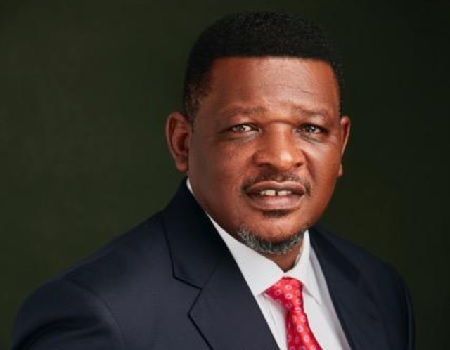The Federal Government (FG), on Tuesday, said it plans to provide Solar Home Systems (SHS) to five million homes across unserved rural communities in Nigeria, under the N2.3 trillion fund for the Economic Sustainability Plan (ESP) coordinated by the Office of the Vice President.
This was even as it noted that rural dwellers according to the survey, were likely to pay electricity bills as compared to their urban counterparts.
The Minister of State for Power, Mr Goddy Jedy-Agba, made the disclosure at the commissioning of the first 12KWP VOLSUS Solar for Health(VSFH) Mini-grid with 50KWH battery bank at the Karu Primary Health Centre(PHC), Abuja.
“Recent surveys across some of these rural communities have shown that interestingly, the rural dwellers were more likely to pay their electricity bills without complaining than those in urban areas where power operators are tackling the challenges of energy theft and meter bypass,” he said
He said as parts of the Ministry’s effort to provide improved power for Nigerians, especially unserved and underserved communities, a committee has been set up to restructure and provide in-depth oversight for its agencies.
“This is because if you grow these communities, then businesses would spring up, the health sector will perform better, and you know what the result is – improved living conditions,” the Minister said.
ALSO READ: ITF commends FG’s directive on harmonisation of skills programmes
Jedy-Agba further stressed that FG is giving more attention to rural electrification as there are needs to empower them and ensure their small-scale businesses thrive.
“Businesses will grow up if the rural dwellers have light,” he added.
Also, he said the administration is promoting the mini-grid regulation made by the Nigerian Electricity Regulatory Commission (NERC).
“Through mini-grids projects, REA aims to provide clean, safe, reliable and affordable electricity to 300,000 homes and 30,000 local businesses.
“The Nigeria Electrification Project (NEP) has turned a new leaf with the commissioning of the first mini-grid under the performance-based grant of REA and the World Bank.”
While speaking on the project, he said the FG
is supporting critical initiatives towards these goals, stressing that reliable power supply is essential across health facilities to increase their work pace.
He said at the onset of the COVID-19, the government had directed that uninterrupted power supply be provided to foremost isolation centres and NCDC testing laboratories in Abuja, Lagos and Ogun States.
“So when we heard about the Volsus Solar For Health (VSFH) programme, we said we will give them the needed support to attain this goal,” he said.
The Minister of State, who stressed the importance of Primary Health Centres (PHCs) in rural communities, lamented that inadequate power supply to them has been one of the challenges the facilities have faced.
“I was informed that at a time, this Karu primary health centre had to suspend night shift because of the epileptic power supply and the challenges that come with that.
“I believe that this is now a thing of the past with the commissioning of this first VSFH 12 kilowatt power (KWP) solar mini-grid with 58-kilowatt hour (KWH) battery bank.”
Earlier in his address, the Chief Executive Officer(CEO) VOLSUS Energy Limited, Engr Tomiwa Bayo-Ojo said the initiative was conceived towards improving Nigeria’s health system while deepening the fight against the COVID-19 pandemic.
He explained that components of the mini-grid facility consist arrays of solar panels that could generate up to 12KWP energy with the battery bank capable of providing 24 hours electricity and could last for 58 hours at its maximum load point without sunshine.
“What this means is that even if there is no sunshine for more than two days, the facility will still power the health centre,” he stressed.
He noted that prior to the installation, access to uninterrupted power has been the bane of the centre especially as it could not operate optimally.
“However, this success story of the Volsus Solar For Health (VSFH) mini-grid is changing that story. The mini-grid is now providing 24-hour electricity to the wards, the labour room, the laboratory, and the entire building,”Bayo-Ojo stated.
He said the pilot mini-grid project was fully funded by Volsus Energy Limited with technical and advisory support from the Office of the Minister of State for Power.
FG to provide solar systems
WATCH TOP VIDEOS FROM NIGERIAN TRIBUNE TV
- Relationship Hangout: Public vs Private Proposals – Which Truly Wins in Love?
- “No” Is a Complete Sentence: Why You Should Stop Feeling Guilty
- Relationship Hangout: Friendship Talk 2025 – How to Be a Good Friend & Big Questions on Friendship
- Police Overpower Armed Robbers in Ibadan After Fierce Struggle






